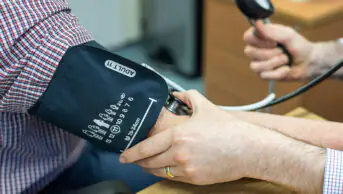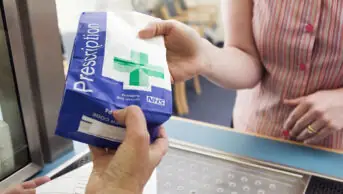
Shutterstock.com/The Pharmaceutical Journal
The Crown Reports were forward thinking, progressive and pivotal in getting non-medical prescribing to the UK.
The second and final of these reports, published in 1999, proposed a new framework so that “new groups of professionals would be able to apply for authority to prescribe in specific clinical areas, where this would improve patient care and patient safety could be assured”. By 2003, pharmacists had been given prescribing rights but were limited to supplementary, or dependent, prescribing — but it was a start and we had to start somewhere.
Now, in 2023, pharmacists are working as autonomous independent prescribers in all settings, using their clinical expertise in medicines to improve patient care and ensure the safer use of medicines.
In community pharmacy in Wales and Scotland, pharmacists are able to provide independent prescribing services that are fully funded by the NHS. They take slightly different forms, but both enable pharmacist independent prescribers to use their clinical skills to prescribe for patients within their ‘scope of practice’.
These services mean that patients have access to care and appropriate treatment, prescribed by a highly trained healthcare professional, without the need for onward referral. This improves access and reduces pressure on other areas of the healthcare system. NHS England is also exploring community pharmacy prescribing models through the launch of pathfinder sites to support and test different models of independent prescribing.
In GP practices, pharmacists are working as important members of the prescribing team, providing essential pharmacotherapy services to patients, such as medication reviews, acute prescribing and clinics for common conditions or for a particular specialty.
In secondary care, being a hospital pharmacist means you are a vital part of a team where the focus is firmly on patients. As prescribers in that setting, pharmacists can help patients manage their care and offer prescribing in both an inpatient and outpatient setting. Pharmacist prescribers are working as generalists in all settings, while also providing specialist care to patients in clinical areas, such as cardiology, mental health and cancer care.
We need to ensure this progress continues and the prescribers of the future are supported to use their skills to their fullest for the benefit of patient care
However, the progress we have made as a profession has not happened overnight, nor has it been easy. Pharmacists started out as supplementary prescribers and then had to work to enable further qualification as independent prescribers. Also, services and opportunities for pharmacists to use their qualifications have not always been in place, identifying how this could work took time, effort and some trial and error.
Organisations such as the Royal Pharmaceutical Society (RPS) started the independent prescribing journey by advocating and lobbying on behalf of the pharmacy profession, speaking to politicians, policymakers and anyone who would listen about the amazing potential of these already highly trained professionals and how these advancements could make a difference.
To do that, we produced aspirational policies, calling for the highly-trained pharmacist independent prescriber workforce to work routinely as part of multidisciplinary teams (MDTs) in all healthcare settings, and showed what we could do as professionals when we were supported to work to the top of our licence.
The Society used case studies from trailblazing pharmacists who were pushing the boundaries. We considered the enablers and the barriers to establishing pharmacist prescribing in local contexts before exploring how it could work nationally.
We lobbied, using those policies and examples, to ensure that whenever medicines were discussed pharmacists had a voice and to ensure that the role we could play as prescribers in the health service would be front and centre of policy and service design.
While we still have a long way to go, we are now working as an integral part of MDTs in both primary and secondary care and using our prescribing skills to offer better access to treatment in the community. With pharmacists expected to be ‘prescriber ready’ at the point of registration from 2026, we need to ensure this progress continues and the prescribers of the future are supported to use their skills to their fullest for the benefit of patient care.
So now it is important that we share that journey and how we have got here; the good and the bad.
At the European Society of Clinical Practice symposium in Aberdeen, Scotland, on 1–2 November 2023, the RPS is holding a workshop that will look at how the Society worked, as an organisation and collaboratively, to establish and embed pharmacist prescribing into every setting where pharmacists work.
The session — ‘Pharmacist Independent prescribing in the UK — from policy to implementation’ — will show the journey the Society went on and allow others to learn from what we did. The workshop will explore barriers and enablers to advancing pharmacy practice through prescribing at both a practical and systems level and explore pharmacists’ day-to-day prescribing role through case studies and activities.
We will also look at what is required once prescribing is established to ensure support needs are identified for new prescribers and supervisors considering, peer networks, training and MDT involvement. Most importantly, we will consider what prescribing in the UK is and what it looks like on a day-to-day basis from the prescriber perspective and from that of the professional supervisor or designated prescribing practitioner.
We hope this workshop will show what is achievable and how we are working to use the skills of pharmacists to their fullest in all settings for the benefit of patient care.
Laura Wilson is director for Scotland at the Royal Pharmaceutical Society


